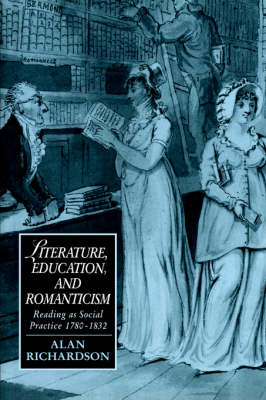Cambridge Studies in Romanticism
2 total works
In this provocative and original study, Alan Richardson examines an entire range of intellectual, cultural, and ideological points of contact between British Romantic literary writing and the pioneering brain science of the time. Richardson breaks new ground in two fields, revealing a significant and undervalued facet of British Romanticism while demonstrating the 'Romantic' character of early neuroscience. Crucial notions like the active mind, organicism, the unconscious, the fragmented subject, instinct and intuition, arising simultaneously within the literature and psychology of the era, take on unsuspected valences that transform conventional accounts of Romantic cultural history. Neglected issues like the corporeality of mind, the role of non-linguistic communication, and the peculiarly Romantic understanding of cultural universals are reopened in discussions that bring new light to bear on long-standing critical puzzles, from Coleridge's suppression of 'Kubla Khan', to Wordsworth's perplexing theory of poetic language, to Austen's interest in head injury.
In this wide-ranging and detailed book Alan Richardson addresses many issues in literary and educational history never before examined together. The result is an unprecedented study of how transformations in schooling and literacy in Britain between 1780 and 1832 helped shape the provision of literature as we now know it. In chapters focused on such topics as definitions of childhood, educational methods and institutions, children's literature, female education, and publishing ventures aimed at working-class adults, Richardson demonstrates how literary genres, from fairy tales to epic poems, were enlisted in an ambitious programme for transforming social relations through reading and education. Romantic texts - including Wordsworth, Shelley, Blake, and Yearsley - are reinterpreted in the light of the complex historical and social issues which inform them and which they in turn critically address.

